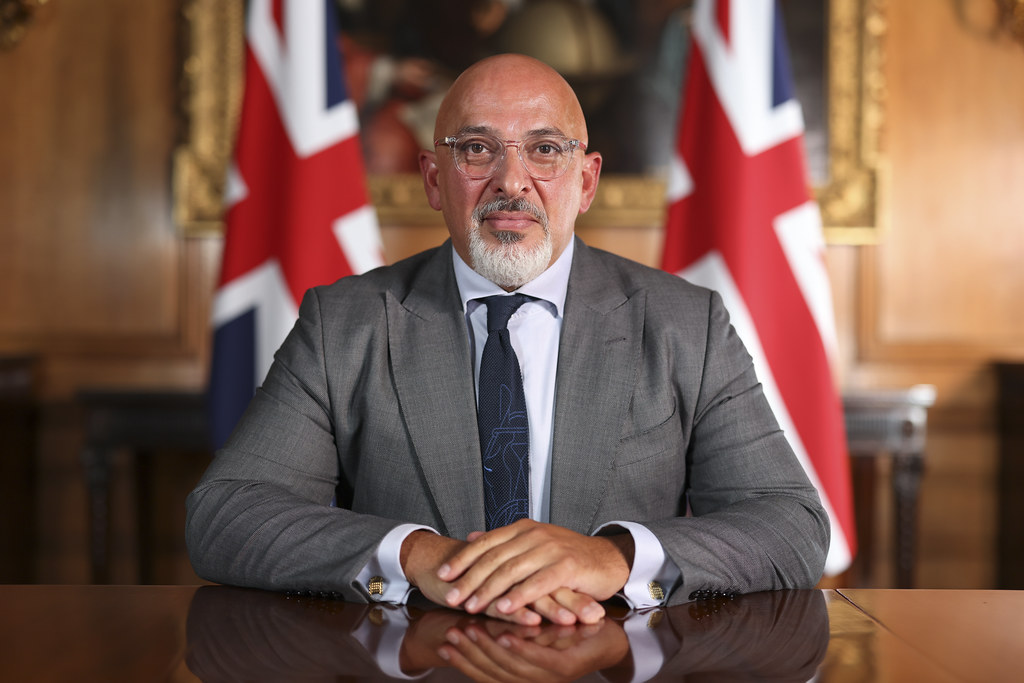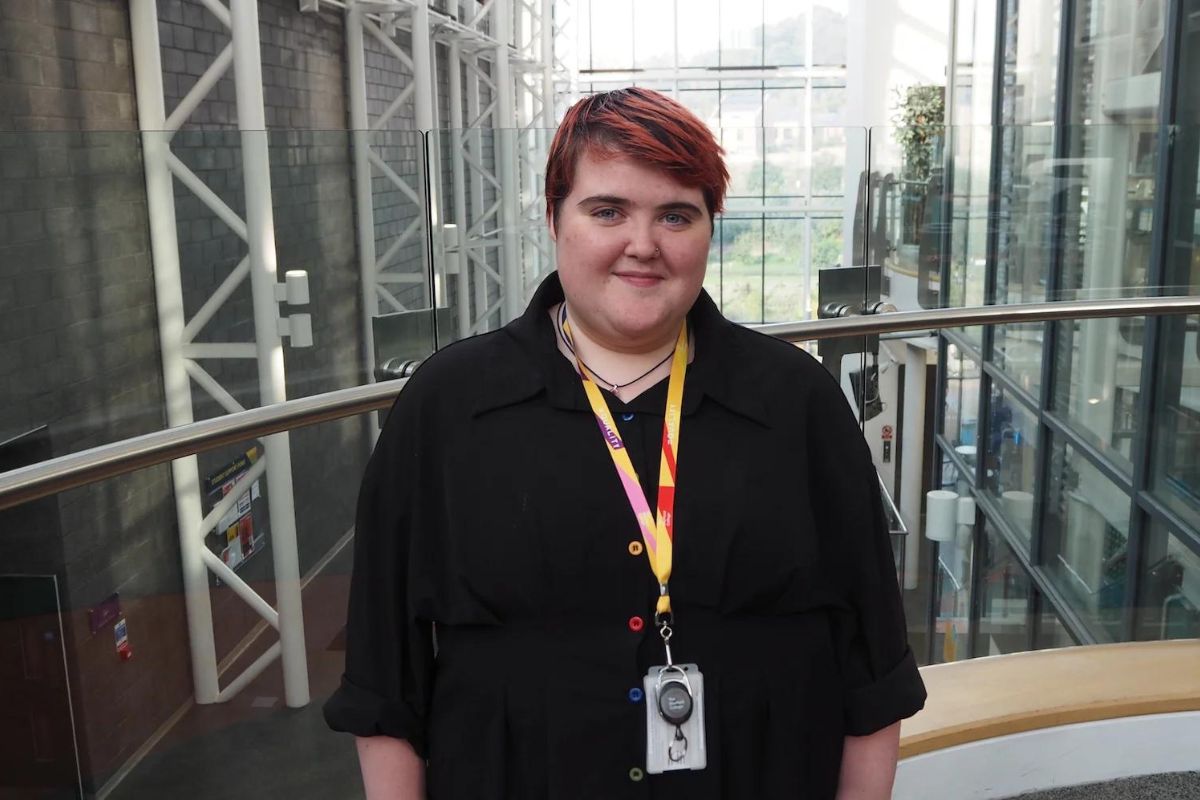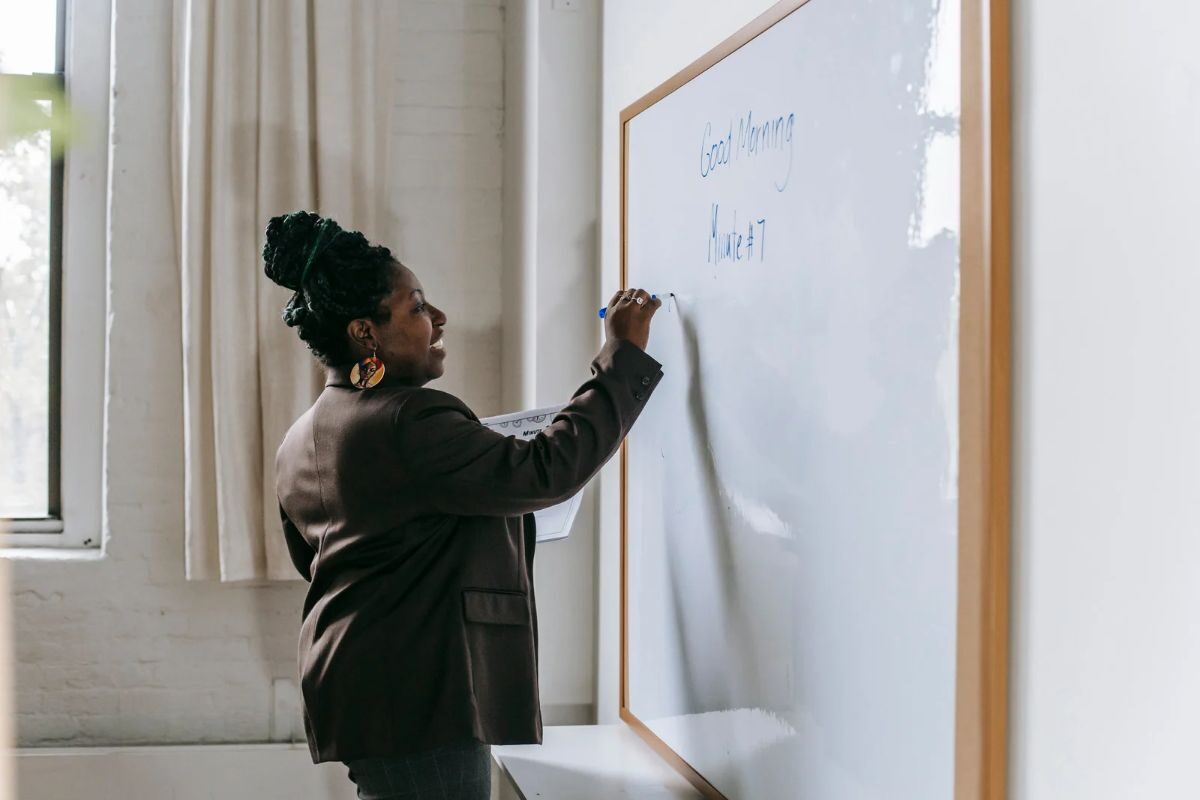New Natural History GCSE to help the UK lead the way in climate and sustainability education

Secondary school students will be able to study the natural world through an exciting new GCSE in natural history to be introduced by September 2025.
It forms part of new plans announced by Education Secretary Nadhim Zahawi today (Thursday 21 April), detailing how the UK education sector is to become a world leader in climate change by 2030, as part of the launch of the government’s flagship Sustainability and Climate Change Strategy.
The new Natural History qualification will enable young people to explore the world by learning about organisms and environments, environmental and sustainability issues, and gain a deeper knowledge of the natural world around them.
They will also develop the skills to help them carve a future career in the natural world if they wish to – for example observation, description, recording and analysis, through sustained and structured field study.
The government will also confirm its plans to accelerate the rollout of carbon literacy training to support at least one sustainability lead in every locally maintained nursery, school, college and university. The training will support settings to develop climate action plans that will bring together and drive activity to improve climate education, put in place measures to protect them against the effects of climate change, and increase climate resilience through adaptation initiatives.
The Education Secretary will also pledge greater support for teaching climate change at all levels and by 2023 there will be new requirements for further education teachers to build sustainability into their teaching.
Young people will also be able to bolster their environmental education gained in existing subjects, including changes to landscapes and urbanisation in geography, and habitats and ecosystems in science.
Education Secretary Nadhim Zahawi said:
“We are delivering a better, safer, greener world for future generations and education is one of our key weapons in the fight against climate change. The entrepreneurial, can-do spirit of this country makes me confident that we will win this fight.
“It shouldn’t come as a surprise to anyone that young people are already very committed to a more sustainable planet. We should be proud of this, and I want to do everything I can to encourage this passion so they can be agents of change in protecting our planet.
“The new natural history GCSE will offer young people a chance to develop a deeper knowledge and understanding of this amazing planet, its environment and how we can come together to conserve it.”
The measures are expected to build on the government’s pledge for every new school, and delivered under the department’s school rebuilding programme, to be cleaner, greener and net-zero in operation.
The rollout of ultra-low carbon education buildings will also be accelerated, and by 2025 at least four schools and one college will have been built via the Gen Zero Platform that the department demonstrated at COP26.
The strategy also details the development of additional measures first announced at COP26.
This includes the National Education Nature Park that will help children and young people to get more involved in the natural world. It will help the increase of biodiversity in the grounds of their nursery, school, or college by them taking small steps, such as installing bird feeders and ‘bug hotels’. Teachers will be provided with free, high-quality climate education resources as part of the Nature Park hub.
Children and young people will also be able to undertake a new Climate Award in recognition for their work to improve their environment, with a prestigious national awards ceremony held every year. The Climate Leaders Award will help children and young people develop their skills and knowledge in biodiversity and sustainability and celebrate and recognise their work in developing their skills and knowledge.
Sector Response
Global adventurer Bear Grylls said:
“The introduction of a natural history GCSE is a brilliant addition to the learning young people receive on climate education.
“It will inspire so many young people to develop their passion and knowledge of the natural world, and how we can best protect it.”
Director of the Natural History Museum, Dr Doug Gurr said:
“We have been delighted to work with such a wealth of experts in helping to shape what this exciting new subject could look like. Drawing on the Museum’s vast experience, we know that once young people are inspired to engage with the world around them, they are far more likely to want to protect it.
“A Natural History GCSE is a huge step in helping to harness the passion young people across the UK are demonstrating for the natural world and in creating Advocates for the Planet.”
Natural England Chair Tony Juniper said:
“Many youngsters are fascinated by the natural world and feeding this interest creates adults that are better connected to nature while benefitting their own mental and physical health and the environment. We are delighted that the Department for Education is recognising this with a new Natural History GCSE, enabling more young people from across society to experience nature with greater understanding and appreciation at a critical time for our planet.
“Natural England has championed the importance of children learning about nature for over a decade, most recently through the successful Children and Nature Programme where we have worked with government to encourage children to be close to nature, in and out of school.”
Environmentalist Mary Colwell said:
“A GCSE in Natural History could be a game-changer for the nature of Britain. Everyone will have the opportunity to be nature-literate, to learn about British wildlife and how it relates to the rest of the world, which is essential for a sustainable, green future.”
Tim Oates CBE, who leads Research & Development at Cambridge University Press & Assessment, said:
“As climate change threatens our way of life, the education system must respond. A forward-thinking curriculum cannot remain static in a rapidly changing world. This is a visionary decision by Ministers. It shows how national qualifications can support vital social and economic priorities around sustainability – building on the National Curriculum in primary and delivering the awareness and understanding which the Dasgupta Review strongly recommended.
Jill Duffy, OCR Chief Executive, said:
“This GCSE is a wonderful opportunity for young people everywhere – from urban to rural environments – to study and connect with wildlife and the natural world. Deeper engagement with biodiversity and sustainability will equip generations of young people to understand their environment and grapple with critical challenges.”
Conservationist and wildlife writer Kabir Kaul, aged 15, said:
“In a time where we face climate and ecological crises, and rising eco-anxiety in young people, a Natural History GCSE will give my generation the knowledge and practical skills they need to value and protect the environment around them. I am hopeful and optimistic it will give many of them the confidence to make a difference for the natural world for decades to come.”
Baroness Floella Benjamin said:
“To understand the plight of our planet and how to rescue it is vital. So young people need to study natural history as early as possible in depth, so that they can take GCSE exams and be equipped to save the world from catastrophe.”
Lord Ralph Lucas said:
“If we are to do better by the natural world we must bring up our children to know it and feel part of it. A Natural History GCSE will anchor all the DfE’s efforts in this direction.”
Professor Phil Manning, Chair of Natural History at the University of Manchester, said:
“The natural world consists of a rich language that if properly taught and understood has the ability to save the planet for future generations. The GCSE in Natural History is a major step towards a sustainable planet, with schools becoming hubs for student ambassadors. There is still hope for the future when knowledge and understanding of our planet is spread far and wide.”
Dom Higgins of the Wildlife Trusts said:
“We applaud this announcement and hope the new GCSE will inspire lots of young people, from diverse backgrounds to consider a career in conservation. For many teenagers gaping inequalities mean they don’t get the opportunity to enjoy and understand nature or wild places.”
“Young people have been at the forefront of action for a healthier planet, now they will finally have the chance to study our natural world, its wildlife and plants, our impact on it and how climate change and nature are interlinked.
“The Wildlife Trusts look forward to continuing our work as part of the Strategic Advisory Group for the GCSE, with OCR and Cambridge University Press & Assessment. We owe a huge debt of gratitude to naturalist Mary Colwell for tirelessly championing her proposals for a Natural History GCSE.”
Suzanne Moss, Head of Education and Learning at the Royal Horticultural Society, said:
“The approval of a Natural History GCSE is a major step forward in environmental education. When people understand the world around them they are much more likely to want to, and to be able to protect it. We are delighted that this diverse and inclusive programme considers a wide range of environments, from rural, to urban, to cultivated and will link more learners with the possibilities of the plant world. It will open up new avenues for young people in their careers, and support the protection of the planet at an individual and organisational level.”
Commenting on the proposed natural history GCSE, Professor Justin Dillon, from the University of Exeter’s Graduate School of Education and President of the National Association for Environmental Education, said:
“The course will compete with very popular and well-established GCSEs in biology, chemistry and geography. It will struggle to gain a foothold in an already crowded curriculum.
“If the Education Secretary is serious about the need for young people “to gain a deeper knowledge of the natural world around them” then he needs to ensure that all subjects in the school curriculum address environmental and sustainability issues. To do otherwise is to betray another generation of young people.
“What actually will be taught is not clear. Will they learn about the science that exposes badger culling as a failure? Will they be taught why the Secretary of State for the Environment, George Eustice, granted an application by the National Farmers Union and British Sugar for emergency authorisation of thiamethoxam, known to kill pollinators in huge numbers, for the treatment of sugar beet seed? Somehow, I doubt it – it will probably be good for the sales of Ladybird books but not the lives of Britain’s ladybirds.”
Environmental Audit Committee Chairman, Rt Hon Philip Dunne MP, said:
“I am delighted that the Government has accepted our Committee’s recommendation to introduce a Natural History GCSE. Nature is in a fragile state in our country and nurturing our next generation of ecologists is critical if we are to turn the tide on the risk of extinctions across our natural world. Fewer and fewer young people are spending time outside appreciating and learning about nature: a formal qualification can help build knowledge and instil a love and respect for the great outdoors. It can help inspire solutions, securing the health of important ecosystems and building our critically important green workforce.
“We were very clear in our reports on biodiversity and ecosystems that we are facing a ticking timebomb of mass biodiversity loss, with the UK the most nature-depleted of G7 countries. This is exactly the right sort of intervention needed to make lasting change and to launch young people who might choose the growing career prospects in ecology and nature.”
Commenting on the Department for Education’s announcement that it will introduce a new GCSE in natural history and launch a Climate Change and Sustainability Strategy, Julie McCulloch, Director of Policy at the Association of School and College Leaders, said:
“We are pleased to see the Education Secretary deliver on one of the first pledges he made when he took office by putting climate change and sustainability at the top of his educational agenda.
“We feel sure that the new natural history GCSE will prove popular when it becomes an option for students in 2025 and provide an educational focal point for the significant interest in the environment that many young people already have.
“This new GCSE, alongside the launch of the government’s Climate Change and Sustainability Strategy, will hopefully become the building blocks towards a suite of environmentally-based courses and qualifications available to young people in the future at both GCSE and A-level.”
Paul Whiteman, general secretary of school leaders’ union NAHT, said:
“The development of a GCSE in Natural History is a very welcome step to enable and encourage pupils at KS4 to learn more about the natural world. But it is vital that education about the environment, climate and sustainability is embedded throughout the curriculum at all key stages – all children and young people should be supported to develop their knowledge and understanding of the world we live in, including environmental issues which they feel passionately about.”
Dr Mary Bousted, Joint General Secretary of the National Education Union, said:
“This is a step in the right direction but so much more needs to be done if the education sector is to be in a position to claim to be a world leader in climate change by 2030. Encouraging young people to become agents of change in protecting our planet is incredibly important and the opportunity to develop a deeper understanding of the natural world is very much part of this. However, we are concerned that the DfE hasn’t taken the opportunity to address wider climate issues for young people at all stages in their education.
“Rather than a minority of young people opting for this new Natural History GCSE, we need to review the entire curriculum through a climate lens so that opportunities to learn about sustainability and climate change are available to students of all ages, helping them to understand climate breakdown and how society needs to act to address it.
“Furthermore, whilst certain subjects are enforced by the existence of the EBacc it is difficult to understand where the opportunities will arise even for Key Stage 4 students. You simply have to look at entry numbers in the arts, creative subjects, PE and DT to see the devastating decline of those subjects which sit outside the EBacc.
“The roll-out of ultra-low carbon buildings needs to happen at pace. What has been announced – 4 new schools and 1 college by 2025 – is far too slow. The process needs to be speeded up. We need a target date for every new school to be built under these new specifications and for every old school to be retrofitted to a comparable standard. Retrofitting the entire schools estate by 2030, alongside investment in alternative travel provision for staff and students to decarbonise the school run would set us on course to be a genuine world leader.”












Responses